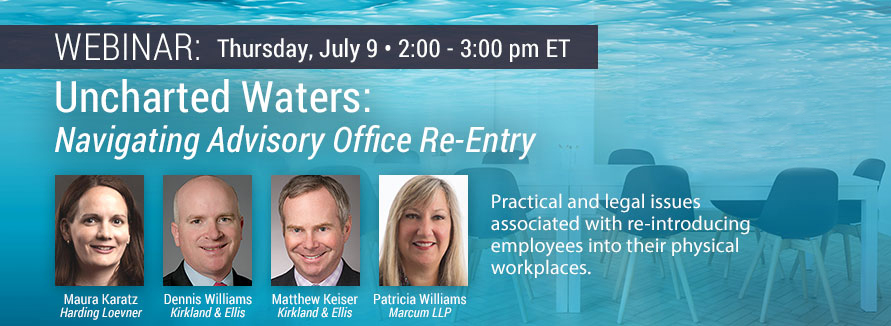When It Comes to Reopening the Economy, HR is on the “Front Lines”
By Sharon Armstrong, SHRM-CP, PHR, CMF*
President, Trainers and Consultants Network
August 26, 2020
For months we have been celebrating the brave men and women on the "front lines" of this COVID-19 crisis. Doctors. Nurses. First responders. Even grocery store clerks. They've all earned our admiration, respect, and gratitude for the work they've done, often for very low pay and at great personal risk.
 Sharon Armstrong
Sharon Armstrong
But as the nation now turns to the difficult task of re-opening the economy, getting people back to work, and ensuring the safety of America's labor force, I don't think it's an exaggeration to say that Human Resources professionals are now on the front lines of this battle.
I have been involved with Human Resources for more than 35 years, and I can't remember a time when I was prouder of my HR colleagues for their willingness to take on what is beginning to look like an overwhelming challenge.
That challenge, in my opinion, is three-fold. First, we have to prepare our organizations (and our employees) for the return to work.
Second, we have to make sure the process of getting back to work goes as smoothly and safely as possible.
Third, we must develop the vision to help shape the workplace of the future.
Here are just some of the challenges we will face as we go through those three phases:
Preparing for the return
Before we even think about getting back to work, HR professionals must master the new government programs and regulations that have been enacted in recent weeks.
These include the Families First Coronavirus Response Act (FFCRA), the CARES Act, changes in unemployment insurance, employee benefits and personal leave.
In addition, we must understand how older regulations like the Family and Medical Leave Act will be impacted by the pandemic. The more policies and procedures we can put into effect before employees return to work, the smoother that process will go.
“We talk a lot about the ‘return to normal.’ But in my opinion, there will be no return to normal – at least not for another year or two. So we must give some serious thought to what the future can and should look like.”
Managing the return safely and efficiently
Keeping our employees physically safe should be the utmost priority as we get back to the office. Unfortunately, we have more questions than answers on that topic. But there is some value in at least knowing the right questions to ask.
For example, how will "social distancing" work at your office? Should you close the kitchen and break rooms? Should you take the temperature of employees before they are allowed to enter? How many people will be allowed in an elevator at the same time? Will the organization supply PPE or expect employees to bring their own? Should you stagger start times and create a night shift?
These questions can seem overwhelming, I know! But the important thing is that you ask them and come up with an answer that works for your organization and that will be applied fairly to all employees.
Visualizing the future
We talk a lot about the "return to normal." But in my opinion, there will be no return to normal – at least not for another year or two. So we must give some serious thought to what the future can and should look like.
Should employees who are able to telework, for example, be allowed to continue to do so? Is that fair to employees who cannot work from home? If not, should the onsite employees receive some kind of hazardous duty pay?
You may have found that your organization worked pretty well during the shutdown. Which raises the question of whether you have too many employees or are paying too much for commercial real estate.
Or you may find your organization is now on the verge of bankruptcy. Which means you're going to spend a lot of time working out RIFs, layoffs, and furloughs – every HR person's least favorite activity.
I've been out of day-to-day HR management for several years now, and I don't envy you for having to deal with all this.
But I was in Human Resources long enough to know that HR professionals (despite our reputation as "The Evil HR Lady") are the most caring, compassionate, and hardest working people in the business world.
You are on the front lines of the re-opening of the American economy. And I salute you!
* Sharon Armstrong has 35 years of experience as a Human Resources consultant, trainer and career counselor. She is the president of Trainers & Consultants Referral Network. Sharon has authored three books – The Essential Performance Review Handbook, The Essential HR Handbook, and Stress-Free Performance Appraisals. You can reach her at sharon@trainersandconsultants.net or at (202) 333-0644.
 A recording of the IAA Webinar Uncharted Waters: Navigating Advisory Office Re-Entry – which brings together voices from the legal, investment advisory, and HR consultancy spheres to discuss considerations for workplace re-entry plans, policies, and procedures that are safe, sustainable, flexible and equitable for employees with a variety of differing needs – is available online.
A recording of the IAA Webinar Uncharted Waters: Navigating Advisory Office Re-Entry – which brings together voices from the legal, investment advisory, and HR consultancy spheres to discuss considerations for workplace re-entry plans, policies, and procedures that are safe, sustainable, flexible and equitable for employees with a variety of differing needs – is available online.
TAGS: HR, Coronavirus, COVID-19, Columns, Guest Column